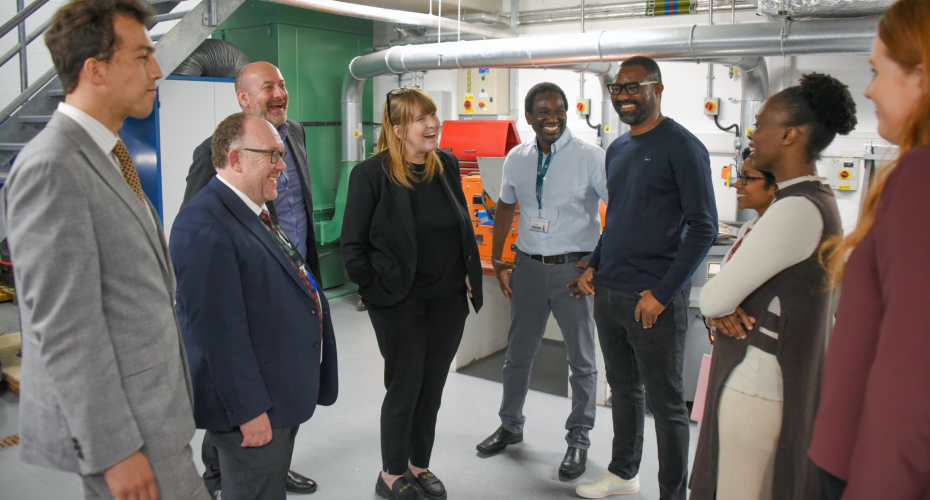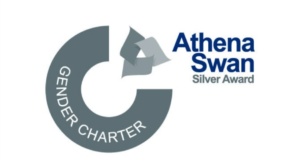Minister of State visits University of Exeter, Cornwall to discuss the future of critical minerals and mining
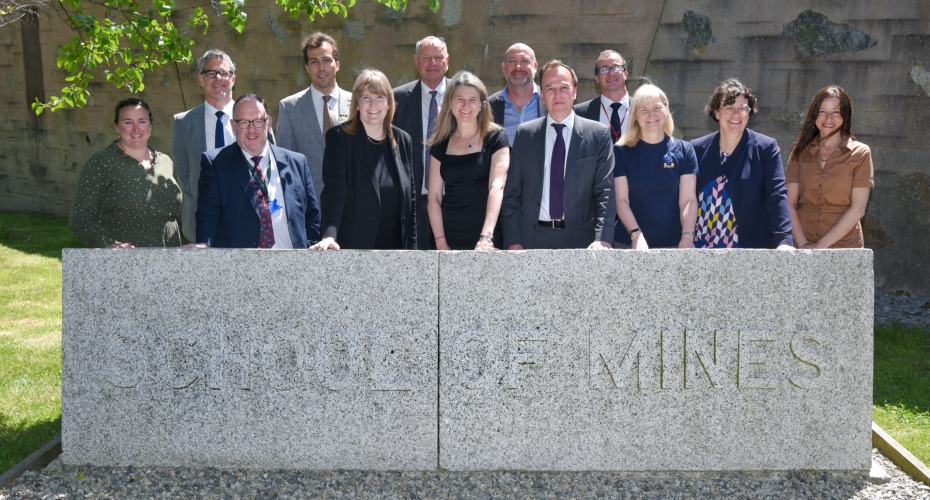
Cutting edge developments and future opportunities in Cornwall’s critical minerals and mining sector were the focus of a special government visit to the Duchy this week.
Industry Minister Sarah Jones was a guest of the Camborne School of Mines (CSM) at the University of Exeter, Cornwall, where she saw first-hand the work that is contributing to the growth of the geo-resources industry and the broader economy.
Alongside Cornwall MPs Jayne Kirkham (Truro and Falmouth), Perran Moon (Camborne and Redruth) and Noah Law (St Austell and Newquay), Ms Jones was taken on a tour of CSM’s research and innovation facilities, meeting some of the academic staff and students who are helping to lead Cornwall’s sustainable mining revolution.
The past year has seen increased activity in this crucial sector, including the Shared Prosperity Fund initiatives, the Cornwall Mining & Geo-Resources Alliance (CMGA) and the Critical Minerals Equipment Hub, led by CSM.
Professor Patrick Foster, Head of CSM, hosted the delegation. “We were delighted to welcome the Minister and showcase both our proud heritage and some of the work we’re doing to support the future of our mining industry,” Professor Foster said. “We are at the forefront of not only educating the next generation of geoscientists and engineers, but our team is leading exciting new developments such as the Cornwall Mining & Geo-Resources Alliance.”
During the visit, the Minister and guests were taken on a tour of CSM’s Mineral Processing Laboratory, where they received a demonstration of froth flotation, a key technology in the sustainable extraction of critical metals from mineral ores. The delegation also met with undergraduate students and PhD candidates.
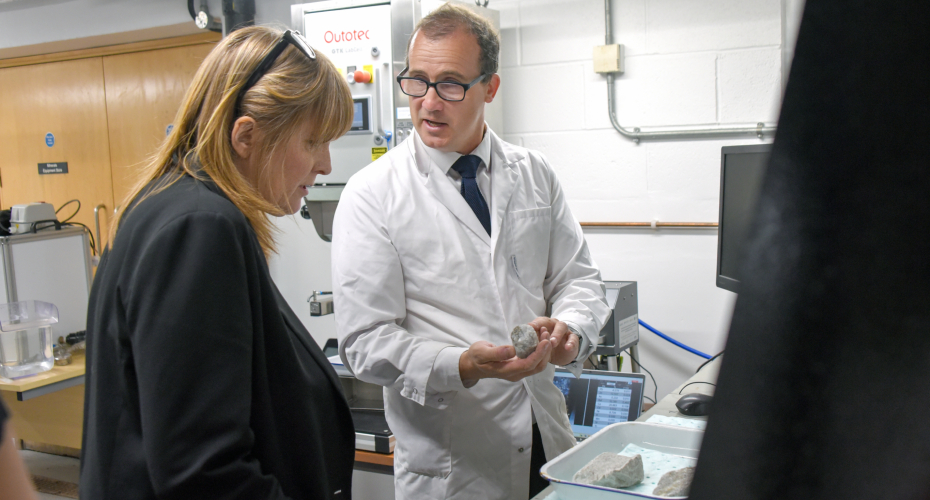
At the Deep Digital Cornwall Visualisation Suite, the Minister viewed an immersive 3D presentation of Cornwall’s mining landscape, highlighting key sites above and below ground. The demonstration traced a route from South Crofty to CSM via Stithians, where mine water heating potential exists, and concluded with an overview of Cornwall Resources’ tin and tungsten exploration area, earmarked for future extraction and demonstration projects.
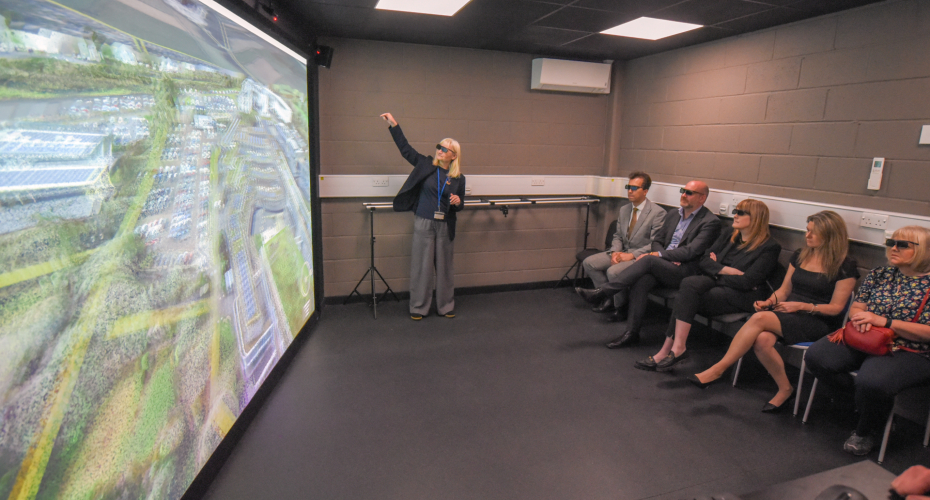
The visit concluded with lunch in the CSM museum, and a meeting with some of the University’s senior staff in its Faculty of Environment, Science and Economy.
Professor Martin Siegert, Vice President and Deputy Vice-Chancellor for University of Exeter, Cornwall, said: “We have world-class research expertise here in Cornwall, across our faculties, and a deep focus on leading clean, green and sustainable growth for Cornwall. Mining and the extraction of critical minerals is a key part of that future economy, and we’re proud of the way CSM is helping to shape that future.”
Lunch discussions focused on two strategic initiatives: the CSM Global platform, which would enable the government to leverage Camborne School of Mines’ international expertise to support policy, deliver mobile training, and advance the UK Critical Minerals Strategy. CSM Global also offers a valuable tool for projecting UK soft power, enhancing energy security, and strengthening international partnerships through technical cooperation and education.
The second proposal is for a Critical Resources Geo Catapult, a dedicated centre for subsurface innovation. This new Catapult would support growth in critical minerals, geothermal energy, underground storage, and engineering, while also addressing key ESG priorities and future skills development for the geo-resources sector.
Minister for Industry Sarah Jones said: “In a changing world, it’s never been so important to have strong supplies of critical minerals. Without them we can’t have renewable energy, AI or a thriving car sector.
“That’s why we’re working with industry to develop a landmark Critical Minerals Strategy that will support the industries of tomorrow and deliver for business. Seeing Cornwall’s thriving mining cluster was vital to help me develop the new Strategy, which will deliver good jobs and a stronger economy.”
